Monitor and promote the effectiveness of donations at relics in Nghe An
(Baonghean.vn) - Nghe An Newspaper had an interview with Ms. Phan Thi Anh - Head of Heritage Management Department, Department of Culture and Sports about the Ministry of Finance's issuance of Circular 04/2003/TT-BCT on the management of donation money, sponsorship for relics and festival activities.
PV: Making merit when going to pagodas or places of worship, religious and belief establishments is an old habit of Vietnamese people. Could you please tell us the meaning of merit in religious and belief activities?
Ms. Phan Thi Anh: "Merit" according to the old concept is morality in public life, social life to distinguish from private virtue, and merit according to the new concept is gratitude to society.
According to the “Dictionary of Practical Buddhist Terms”, merit is good deeds, beneficial functions that bring blessings to oneself and others. Thus, merit - at least in the context of religion in general and Buddhism in particular - is completely voluntary and does not necessarily have to be expressed through money.
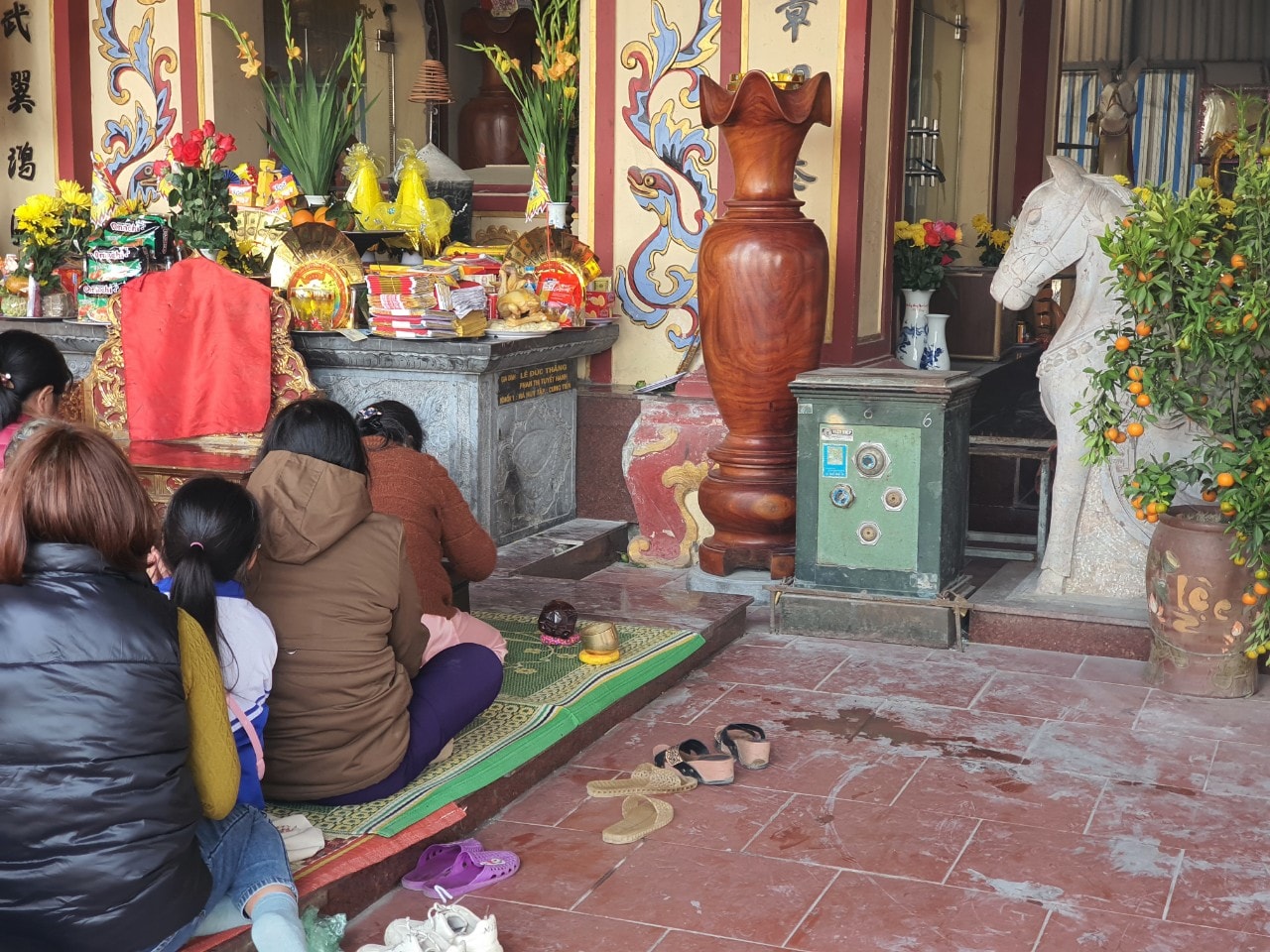 |
A donation box is placed at Ong Hoang Muoi Temple (Hung Thinh Commune, Hung Nguyen District). Photo: Minh Quan. |
Merit is expressed in spiritual places and is used for the maintenance or renovation of spiritual works. The offerings, merits, and sponsorship of organizations and individuals for relics and service activities in festivals and relics are carried out through the following forms: in money, in kind, in intangible assets such as labor days to take care of, protect, repair, renovate, embellish, build facilities, equipment, clean the environment, and other works. This way of expressing sincerity is also a cultural beauty in the spiritual life of Vietnamese people.
PV:Donation money management is a controversial issue due to its sensitivity and complexity. Since it is not a state budget, the demand for transparency is often difficult. So, how has donation money been managed in Nghe An in recent times?
Ms. Phan Thi Anh:Donation and sponsorship activities associated with the nature of festivals and relics are a tradition of Vietnamese people in general and Nghe An people in particular. However, the lack of transparency and openness with donation money can easily lead to disputes in the community and loss of trust in society, showing the need for clearer legal regulations.
According to the inventory, Nghe An currently has 2,602 relics, of which 471 have been ranked, 5 are special national relics, 144 are national relics, 322 are provincial relics with all types: historical relics, architectural art, archeology and scenic spots. In addition, the whole province has 92 festivals.
In 2016, the People's Committee of Nghe An province issued Decision No. 18/2016/QD-UBND promulgating regulations on receiving, managing and using donations at historical and cultural relics and scenic spots in the area. In which, it clearly stipulates the forms of donations including: donations in money, donations in kind and donations in labor.
Donations in kind must have written consent from the competent authority and the receipt of donations in kind must be recorded in the donation book detailing the types of artifacts, sizes, materials, weights, etc.
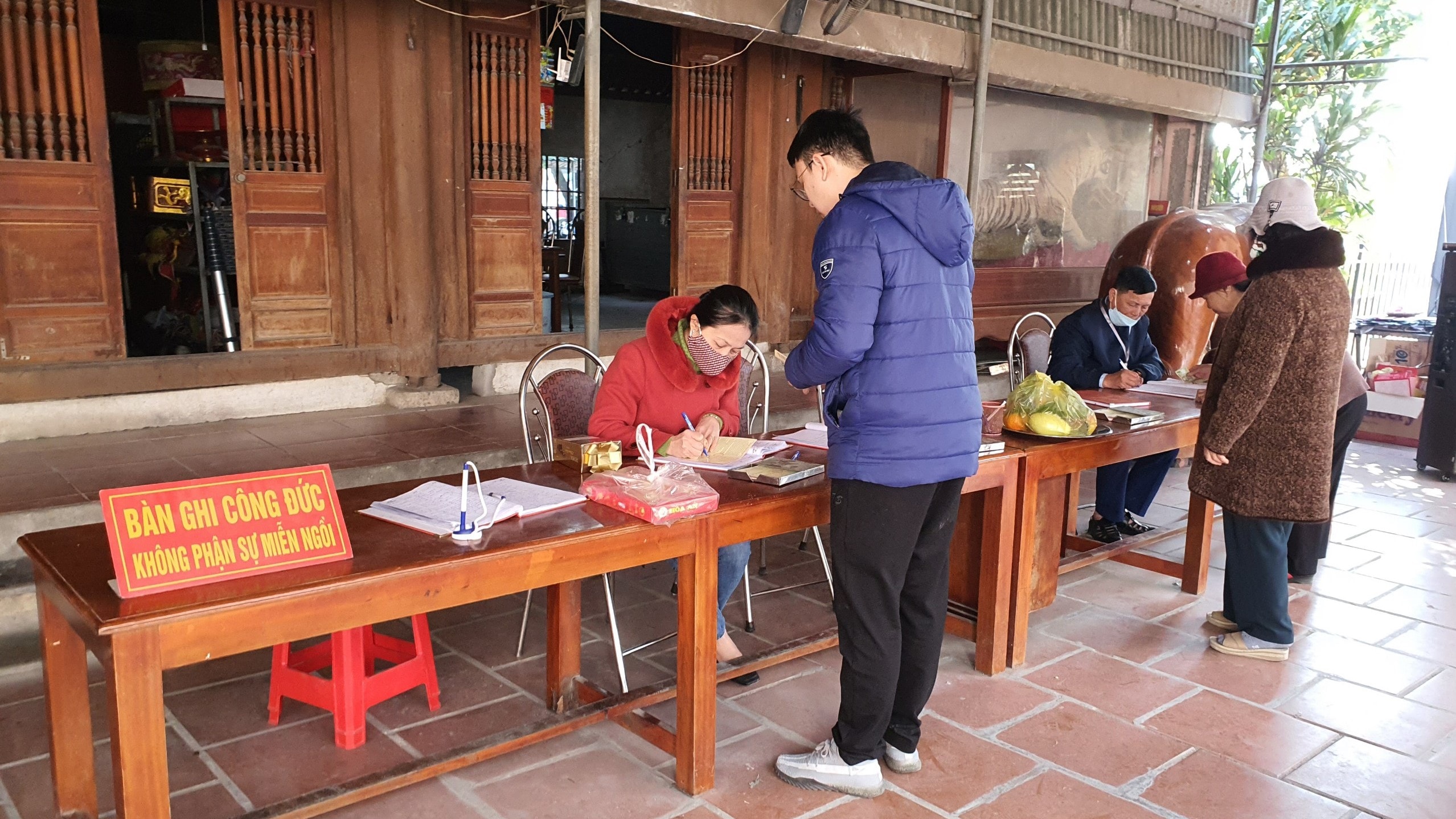 |
The merit table at Ong Hoang Muoi Temple. Photo: Minh Quan. |
Merits in the form of labor (working days) or intelligence (participation, contributions, etc.) must be recorded in the merit book issued by the relic management unit.
For monetary donations, the relic management unit opens a local State Treasury deposit account to manage monetary donations.
Decision 18 also stipulates the process of using cash donations, according to which “The relic management unit or the relic management board, when authorized, shall develop a plan and estimate for using the donation source belonging to the management unit at the end of each year for the following year to submit to the competent authority for approval. Every year, the relic management units must prepare reports, settle the collection and expenditure of donation sources and fully comply with the financial reporting regime as prescribed by law and send reports on the collection and expenditure of donation sources to the Department of Culture - Sports and the Department of Tourism for synthesis and monitoring”.
The Decision also clearly stipulates expenditures from the source of merit, including: Expenditures for the restoration and embellishment of relics (the source of merit from each relic is used for that relic); expenditures for regular activities at the relic; expenditures for labor contract allowances at the relic; remaining for the local budget of the relic to spend on social welfare in the locality; deductions for the source of preserving and promoting cultural heritage to use for preserving and promoting cultural heritage in the whole province. The Decision also stipulates the allocation of merit sources.
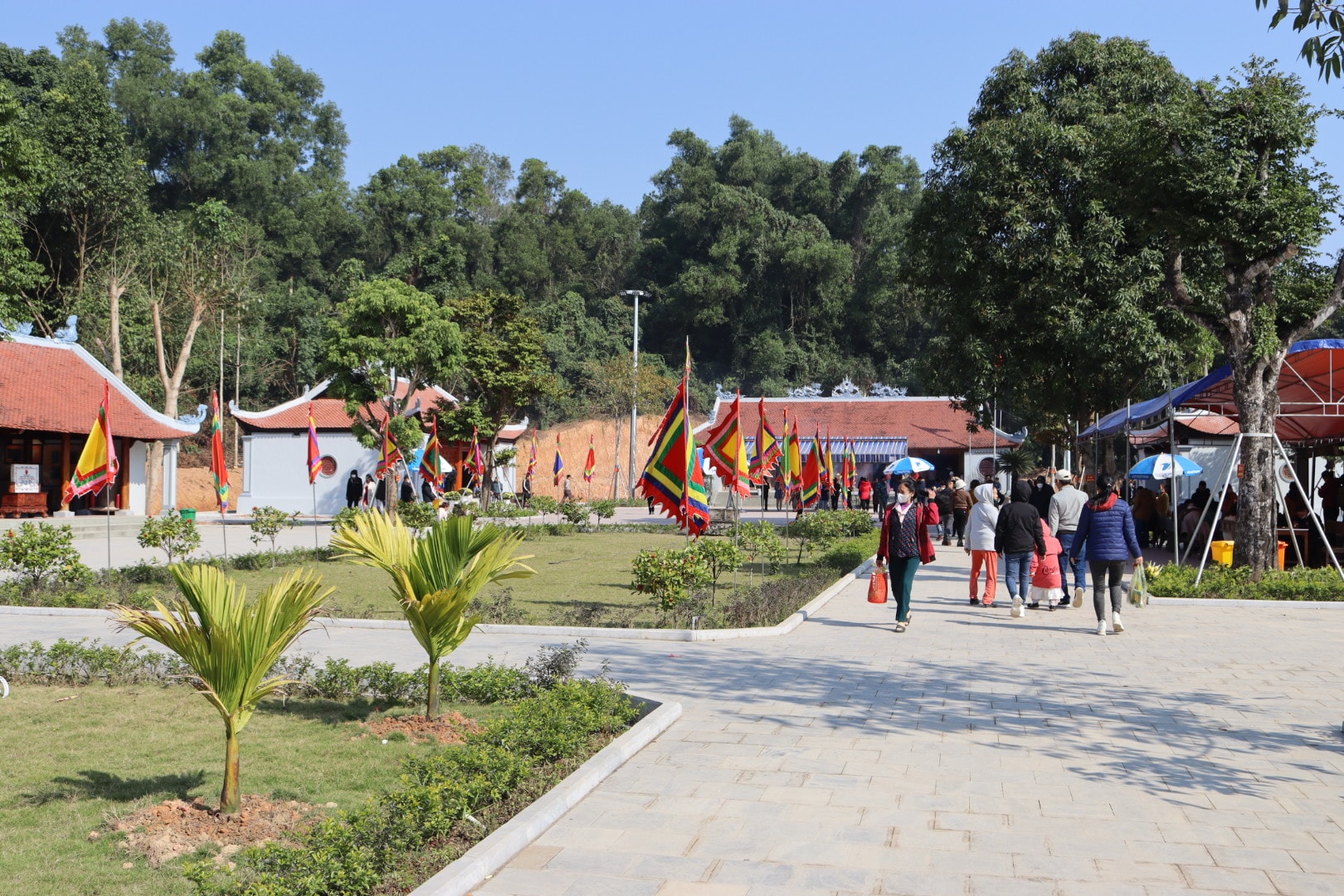 |
Qua Son Temple (Boi Son Commune, Do Luong District) was restored and embellished mainly from donations. Photo: Minh Quan. |
It can be said that in recent times, with Decision 18/2016, Nghe An has done quite well in managing revenue and expenditure from festival organization and donation money sponsored for relics. Every year, the revenue and plan for using donation money from relics are fully reported by localities and units.
According to reports from localities, the revenue from donations in 2022 transferred to the State Treasury of 7 key relics in the province including: Ong Hoang Muoi Temple, Con Temple, Qua Son Temple, Hong Son Temple, Duc Hoang Temple, Bach Ma Temple, and Vua Mai Temple is more than 26.1 billion VND.
PV:The Ministry of Finance has just issued Circular 04/2023/TT-BTC guiding the management and financial revenue and expenditure for festival organization and donations, sponsorship for relics and festival activities. Compared to the regulations of Nghe An province, what are the new points in this Circular?
Ms. Phan Thi Anh:Circular 04/2023/TT-BTC was issued by the Ministry of Finance on January 19, 2023 and took effect from March 19, 2023. According to this Circular, for relics and festivals organized by State agencies, the implementing unit must have an account at the State Treasury or a commercial bank to reflect the receipt, management and use of funds for organizing festivals in the form of transfer and electronic payment. For cases of receiving in cash, the units must appoint a person to receive and open a book to record the full amount of money received.
Thus, compared with the regulations on receiving donations in Decision 18, the regulations in Circular 04/2023 have many similarities. However, the difference between Circular 04/2023 and Decision 18/2016 of the People's Committee of Nghe An province lies in the regulations on the use of donations. Circular 04 stipulates more clearly the management and use of donations and sponsorship in 5 types of relics, including: Relics that are also religious establishments; Relics that are also belief establishments; Relics under private ownership; Relics assigned to public service units for management and use; Relics assigned to the Relic Management Board for concurrent management and use.
For relics that are also religious establishments, relics that are also belief establishments, and privately owned relics, the heads of these establishments shall decide and be responsible for receiving, managing, and using donations and funding for the protection and promotion of the value of relics and festival activities, ensuring compliance with the provisions of the law on belief and religion, the law on cultural heritage, and other relevant laws.
As for relics assigned to public service units for management and use, and relics assigned to the Relic Management Board for concurrent management and use, the provisions on expenditures in Circular 04 are similar to those in Decision 18/2016 of the People's Committee of Nghe An province.
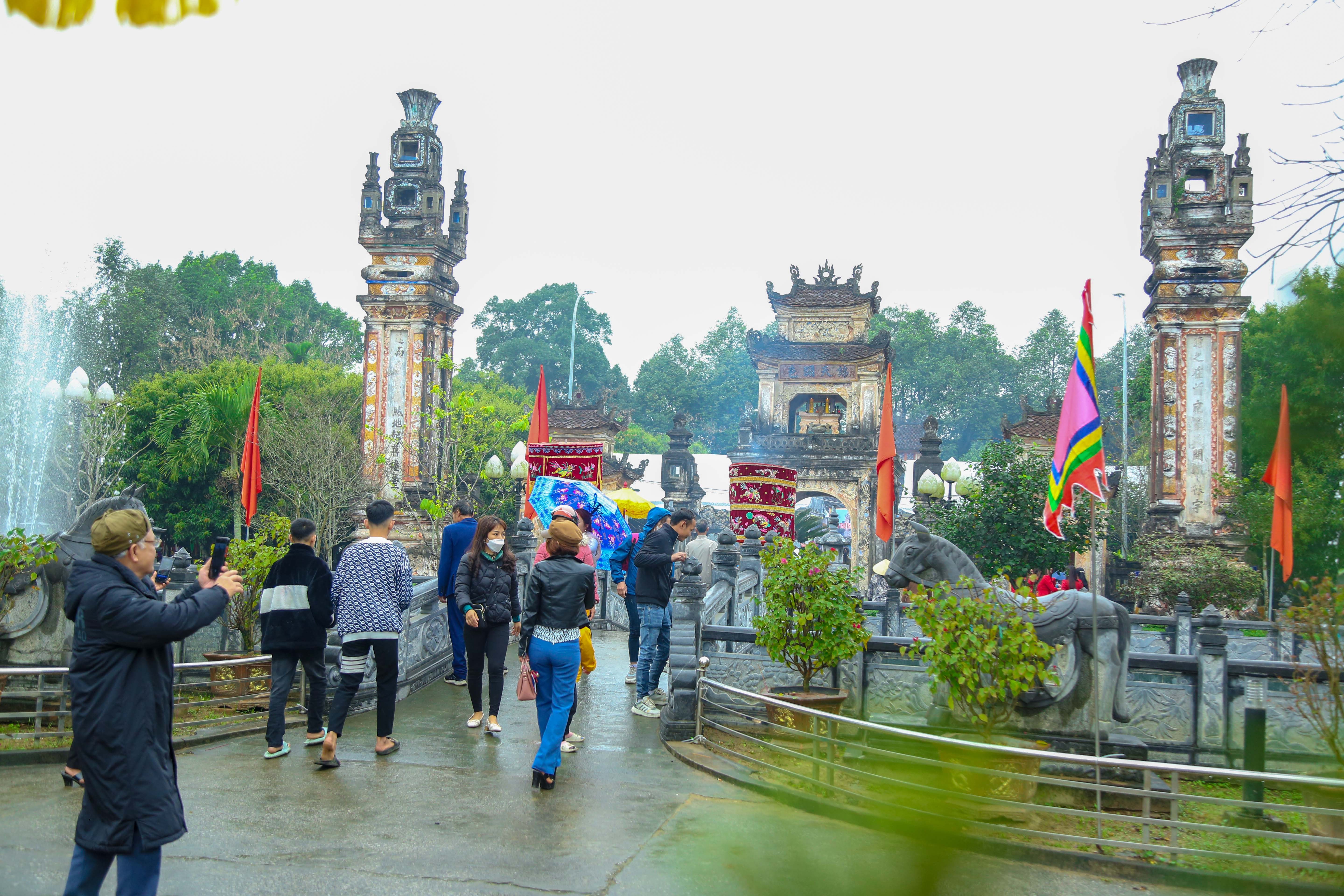 |
People visit and worship Nguyen Xi Temple (Khanh Hop Commune, Nghi Loc District). Photo: Dinh Tuyen. |
However, the difference is that Circular 04 stipulates that "the expenditure level is decided by the head of the organization or individual who is the owner or assigned to manage and use the relic, ensuring that it is suitable to the actual situation, economical and effective; it is encouraged to follow the regime, standards and budget expenditure norms prescribed by competent state agencies". Meanwhile, with Decision No. 18, the People's Committee of Nghe An province has stipulated the allocation according to specific percentages for expenditure items.
Thus, Circular 04 further promotes the autonomy of the heads of relics in managing and using donation money.
PV:How do you evaluate the significance of the issuance of Circular 04/2023/TT-BCT? In order for donation money to be used effectively, what needs to be done well by management agencies, religious establishments, and people?
Ms. Phan Thi Anh:The reason why the current management of donation money is prone to problems is because up to now, sponsorship activities for festivals and relics have been mainly viewed from the cultural and spiritual aspect. However, in recent years, as the source of donation money has become larger, it is considered appropriate that we have clear and specific regulations on the financial aspect such as Decision 18/2016 of the People's Committee of Nghe An province and recently Circular 04/2023 of the Ministry of Finance.
It must be affirmed that merit or contributions, support for festival activities, for religious establishments in general are all goodwill and those who make merit always send their wishes and hearts. The management and use of merit money, if promoted in the right place, will spread more good things.
Doing this well will not only help charity and sponsorship activities become better and more transparent, but also help the field of relics and culture receive more attention and have more resources to preserve and promote the value of heritage and relics.
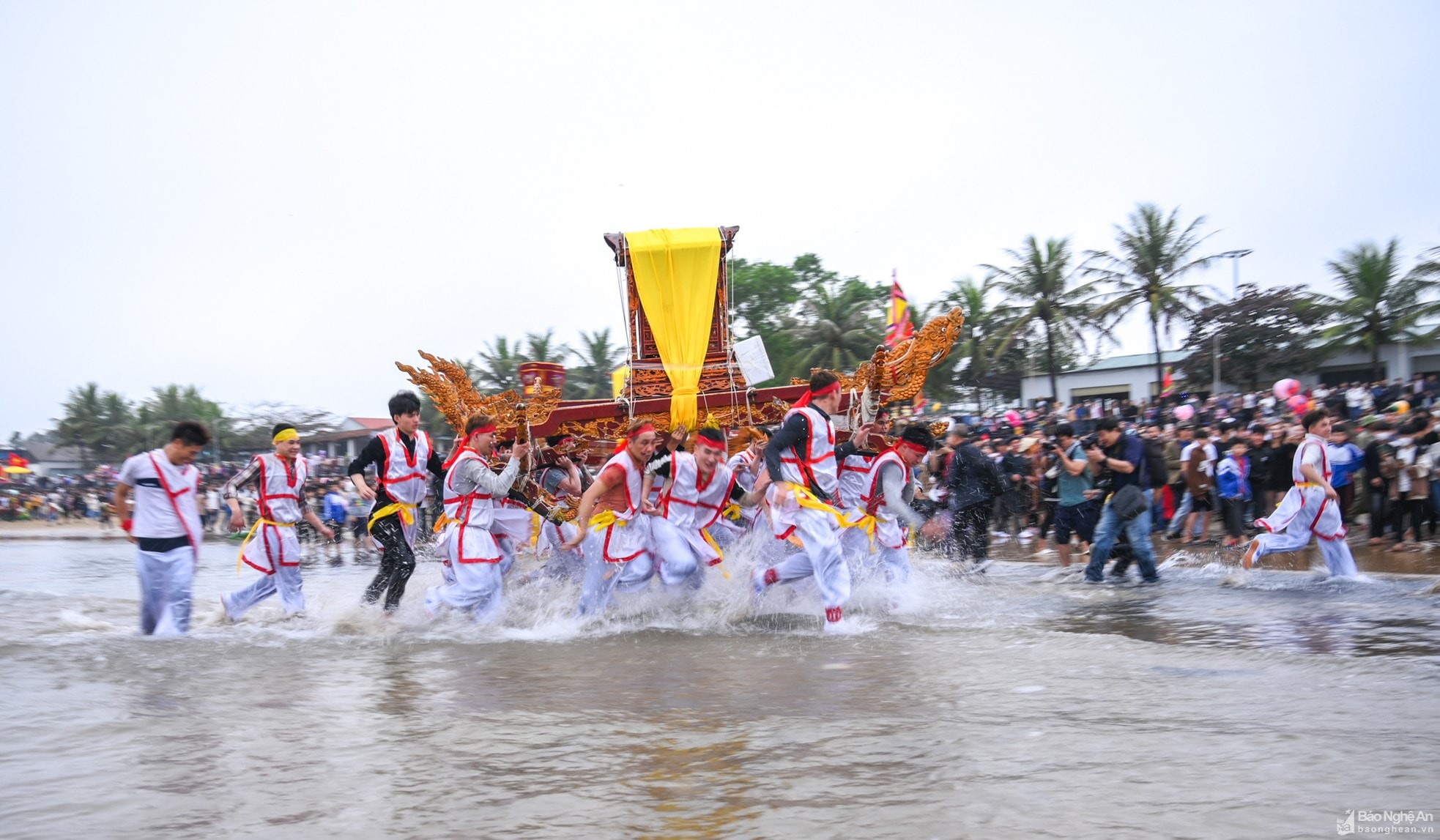 |
Using donations for the right purposes will contribute to promoting the value of relics and festivals associated with relics. In the photo: "Vomiting run" at the Con Temple Festival in 2023. Photo: Thanh Cuong. |
In order for Circular 04 to be put into practice and make effective contributions, it is necessary to do a good job of propaganda to concretize the provisions of the Circular. In addition, it is necessary to have the participation of localities, especially the Monument Management Boards, to issue specific regulations and rules for each of their monuments and festivals, because each monument and festival will have different scales, types, and ownership methods.
As for the people, when visiting and worshiping temples, they also need to make donations in a cultural way, such as not scattering coins but dropping money into the donation box. When supporting or donating cash or valuables, they need to record and sign in the donation book.
The Department of Culture and Sports will continue to monitor and supervise the reception, management and use of donations at relics, in order to improve objectivity, transparency and create more long-term trust for people in religious and belief activities.
PV: Thank you for this interview!
